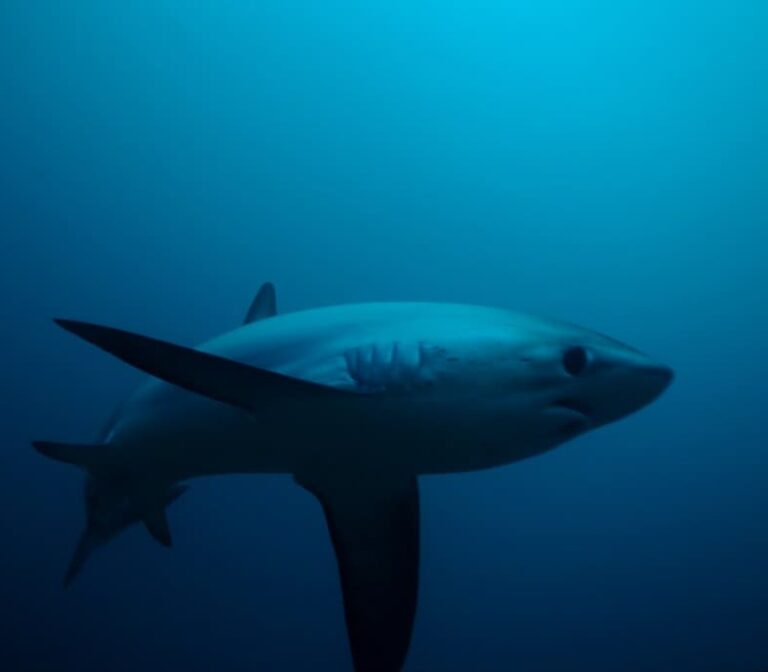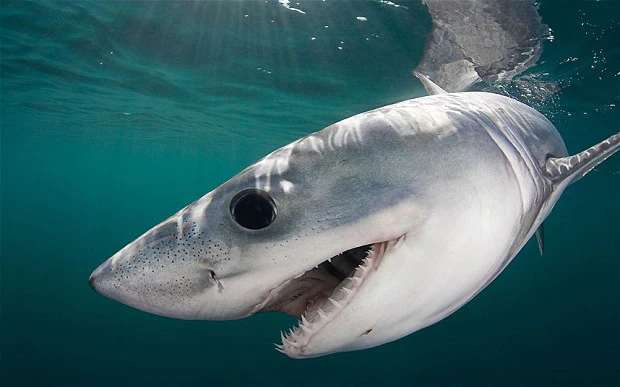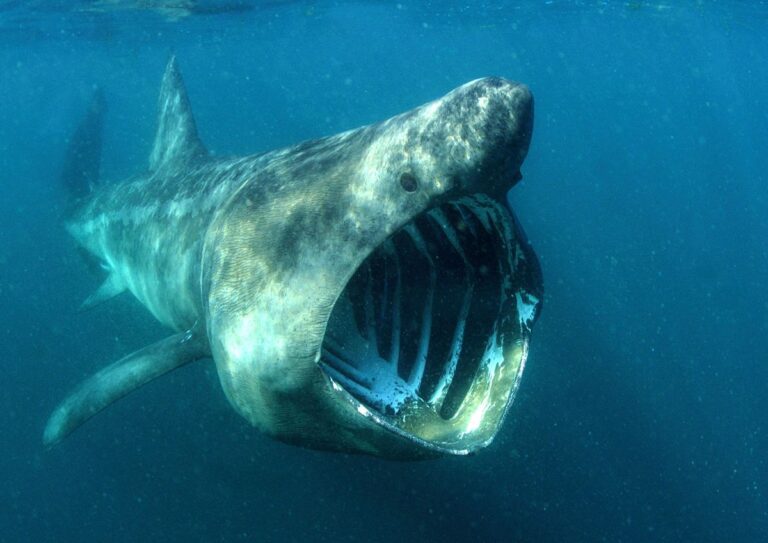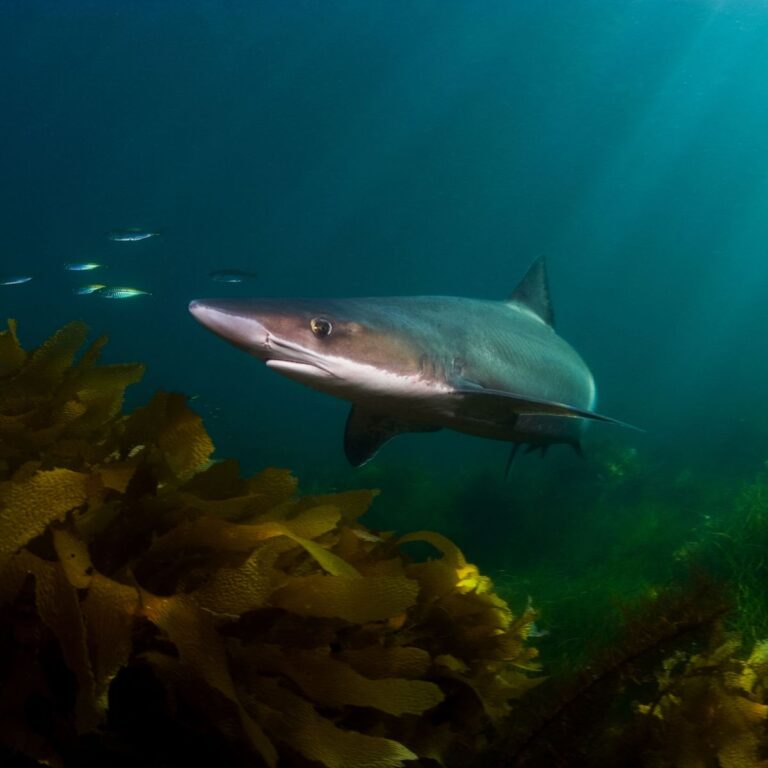Your GUIDE TO Sharks IN CORNWALL
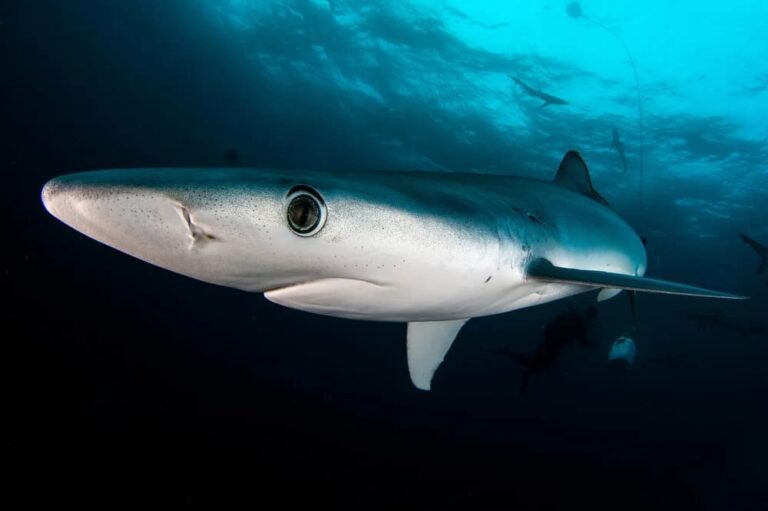
3 interesting facts about sharks:
21
shark species are known to live in UK waters all year around.
116 kg
is the weight of the largest Blue Shark caught in the UK, it measured over 9ft.
400 million years
is how long sharks are thought to have inhabited the ocean for – they existed long before the first dinosaurs!
Shark FAQs
Behaviours and migration habits differ between each species of shark, but there are unifying features that continue to fascinate us. Sharks are cold-blooded fish, breathing through their gills which have small capillaries allowing them to take in oxygen from the water and release carbon dioxide. With over 500 species of sharks, each shark has a different preference for water temperatures, from polar to tropical, with some migrating huge distances to stay comfortable. Most sharks, such as mako, bull, lemon and blue sharks give birth to live ‘pups’. About 25% of sharks, such as catsharks, lay eggs.
Sharks are an apex predator, meaning they are at the top of the food chain without their own predator (apart from humans). The absence of sharks would devastate ocean diversity and quality, and many other species would die.
Cornwall is home to a surprising variety of sharks, from huge basking sharks to tiny catsharks. Basking sharks are the second largest shark in the world, so as you can imagine they are quite a sight! But don’t fear – they are gentle giants who filter feed on plankton. Other common species include blue sharks, porbeagles and smallspotted catsharks. Much rarer, but occasionally recorded in Cornwall is the notorious mako shark. However, they aren’t considered a threat in colder North Atlantic waters as they grow to a smaller size.
It’s incredibly rare for sharks in Cornish waters to come into contact with humans, so you can swim safely without fear of a shark attack! Sharks found inshore are typically small and harmless and the larger species tend to prefer deeper, offshore water. Our boats are a great vantage point to safely experience fascinating sharks in Cornwall should we be lucky enough to catch sight of any near the surface.
Shark sightings are on the rise, this is partly due to more people looking out for them, better technology and some species recovering from decline due to commercial fishing. However, shark populations themselves are declining rapidly, and remain threatened by overfishing, human disturbance, habitat loss and climate change. Population numbers of oceanic sharks and rays have declined by almost 70% since the 1970s, mostly due to overfishing. The UK has around 40 species of sharks passing through its waters, with 21 of these living here all year around. Raising awareness on how vital sharks are to our oceans, and how incredibly unlikely it is for beachgoers here to come across them, is key to supporting initiatives that protect sharks.
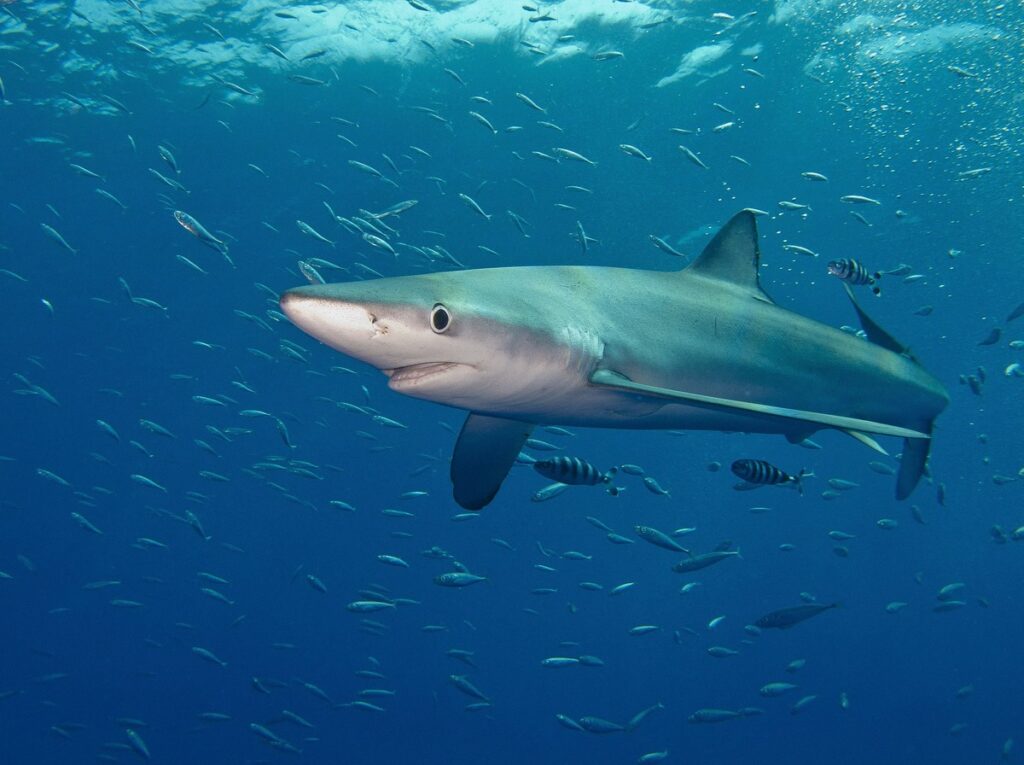
Book your boat trip in Cornwall
Shark Species in Cornwall
A few types of sharks found in Cornish waters that could even be seen on your boat trip if you’re extremely lucky are Blue Shark (Prionace glauca), Porbeagle Shark (Lamna nasus) and Basking Shark (Cetorhinus maximus).
